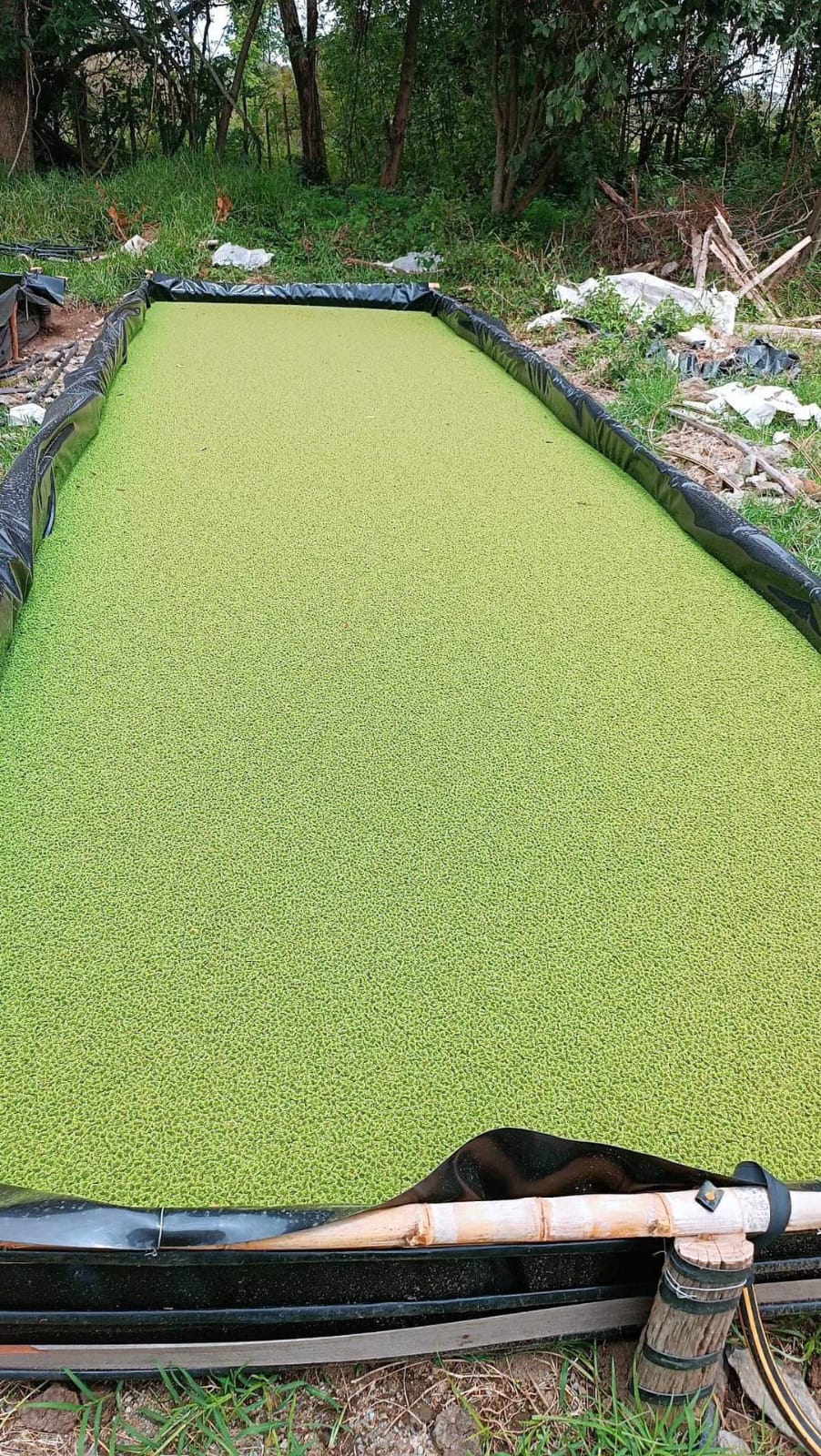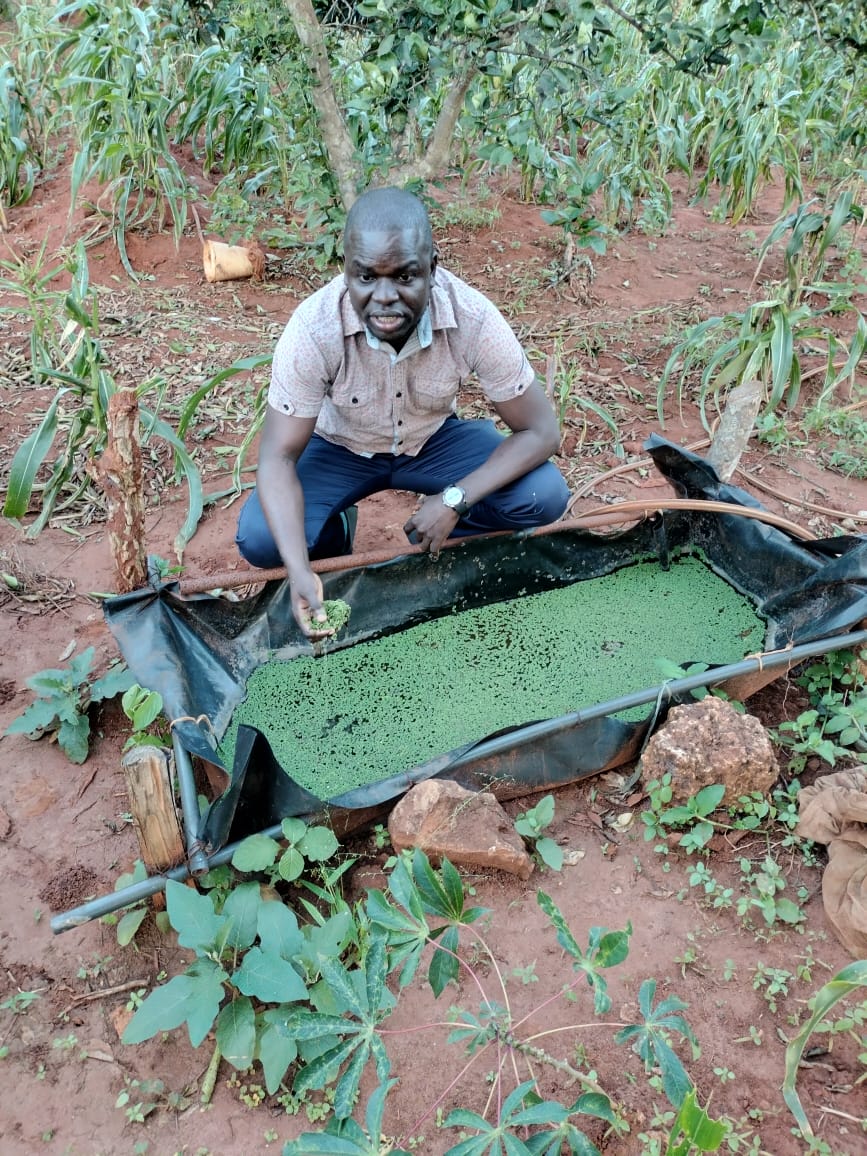
Go Blue Ubuntu Leadership Academy- Victor Mwamuye's story
Mr. Victor Mwamuye is a graduate leader from the Go Blue Project’s Ubuntu Leaders Academy, a non-formal education project geared towards empowering young people with high leadership potential, from vulnerable contexts or who want to work there. It aims to accompany, facilitate, enrich and consolidate the development of each participant as a leader serving the community, promoting the relevant human skills and techniques.
From this academy combined with his own innovativeness, Mr. Mwamuye has managed, against all odds, to establish a successful Azolla farming venture. Azolla is a plant very rich in proteins, essential amino acids, vitamins (vitamin A, vitamin B12, Beta Carotene), growth promoter intermediaries and minerals including calcium, phosphorous, potassium, ferrous, copper, magnesium and very suitable as livestock feed.

Here is his story;
Victor Mwamuye, explains that they grow the plant to feed their chickens and for sale to livestock farmers, especially those who keep rabbits, pigs, cattle and poultry.
Mwamuye recounts that he started the project in January, after seeing a message posted on WhatsApp by a Zambian farmer about growing the crop.
“I read the message at the right time because then, our members were grappling with high cost of feeds,” says the 30-year-old.
“I saw an opportunity in azolla cultivation since it was going to bring relief to our members in Mwaera sub-location, Ganze sub county.”
Mwamuye, who graduated from Technical University of Mombasa with a Bachelor of Business Administration degree, accounting option, says he convinced Kenya Assembly of God Kaembeni Church, their sponsors to support the programme.
“We had donated 25 chickens each to our 20 caregivers to boost their livelihoods but feeds were a challenge,” he says, noting that they have 28 chickens for demonstration at the centre.
To start growing the fern, members were trained by an expert on cultivation and management and then they dug three ponds at the institution.
The ponds were constructed under a shade, which is the ideal site, because the tree shields azolla from exposure to too much sunlight that can lead to drying.
Their ponds measure 3 by 2 by 1 metre, he says.
The ponds are dug and then the soil is levelled to provide an even surface to spread a dam liner sheet to prevent the loss of water after filling.
“Once done, cow dung that is less than five days old is mixed with superphosphate and poured into the pond,” explains Mwamuye.
Then water is filled into the pond to 10cm high, providing an adequate floating surface for the Azolla plant.
The pond should be left for three days to settle and during this time, any dirt should be removed.
Three days later, azolla culture is introduced into the pond by rubbing it in the hands gently to break it into smaller pieces for quick multiplication, explains Mwamuye.
“It matures after 14 days, where it is ready for consumption by livestock. But at harvest, it must be cleaned to remove cow dung smell and dirt before it is given to livestock in its raw form.”
The initial investment for the three ponds was 5kg of azolla seeds bought from a farmer in Kiambu at Sh1,000 and training Sh20,000, says Mwamuye, noting they are giving out members azolla for free.
The azolla plant, according to Mwamuye, is a free-floating aquatic fern that can be fed to poultry, fish, pigs, and cattle. It can also be used as a bio-fertiliser.
Organic mulching for crops. “The plant is easily digestible and is a nitrogen-fixer with high nutrient value since it has high protein, vitamins, and amino acids that are recommended for livestock development.”
The plant provides organic mulching for crops and hinders weed development as it maintains the soil moisture for a long time once applied.